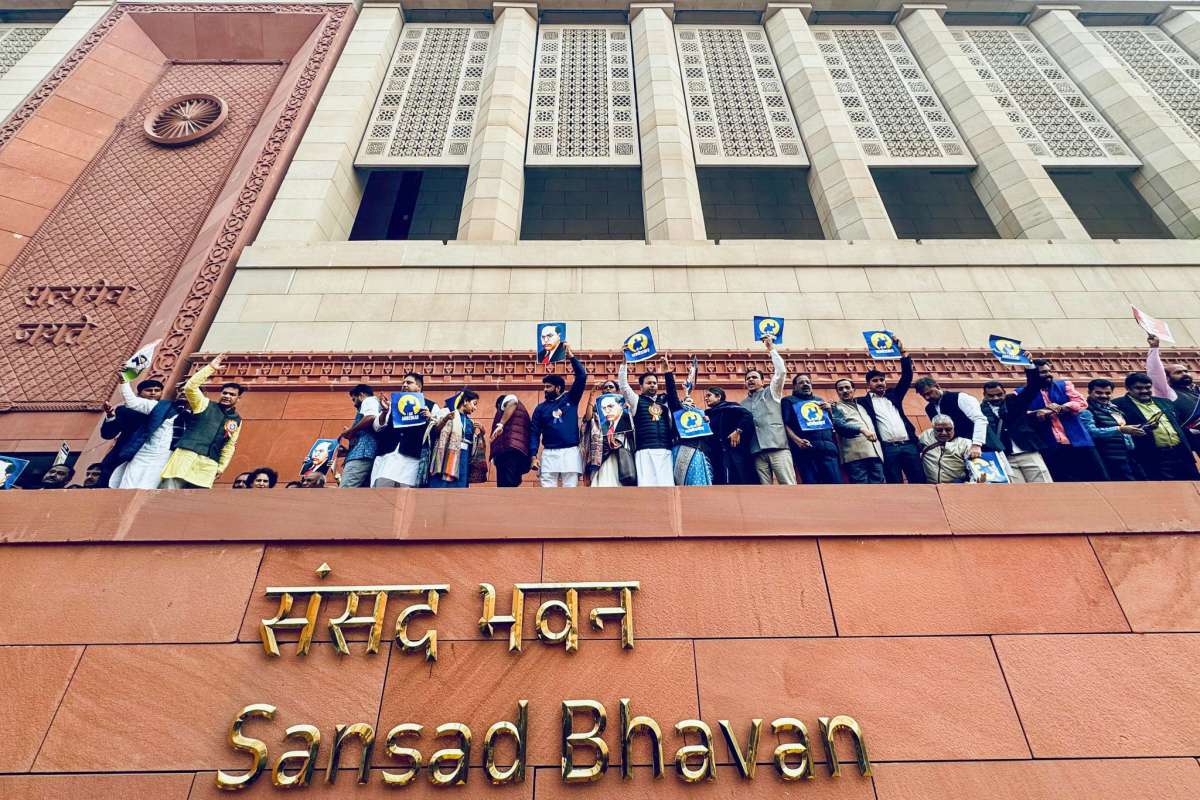The conversation on amending the Prevention of Electronic Crimes Act 2016 should also be revived. Finally, a law criminalizing enforced disappearances, used frequently to quell dissenting narratives, must be passed…reports Asian Lite News
The Human Rights Commission of Pakistan (HRCP) on Friday organized a round table conference in Islamabad, raising their concerns about the Punjab Defamation Act.
The HRCP called upon the administration to repeal the act pushed through a defamation law to curb fake news, however, civil society, and journalists say that it infringes on freedom of press and expression.
HRCP in a statement said that it could build fears of a national firewall and greater censorship – the law’s real purpose is much more nefarious, aims to muzzle free speech and inhibit dissenting voices.
The event witnessed the participation of journalists, digital rights experts and civil society members who drew the state’s attention to receding civic spaces and democracy in the country.
During the event Law and Policy Expert Muhammad Aftab Alam while discussing the key loopholes of the Punjab Defamation Act 2024 pointed out that radical changes need to be made to the definitions of key terms such as ‘broadcasting’, ‘newspaper’ and ‘journalist’.
Moreover, journalist and researcher Adnan Rehmat mentioned that the law exceptionalised political and state elites and legalized discrimination. A member of the HRCP Farhatullah Babar mentioned that the law was yet another step in the militarization of the state and society, and tantamount to overwriting other laws, such as those governing the right to information.
Co-founder of Media Matters for (MMFD) Sadaf Khan pointed out a probable plan of the administration to install a national firewall and said this would broaden the scope of censorship by monitoring Internet traffic. “It was an ill-thought plan that had bred fear and mistrust,” she said. Furthermore, another MMFD member also added that such a move would have a serious economic impact on freelance work and online trading.
According to the HRCP statement academic and journalist Tauseef Ahmed Khan traced the history of censorship in the legacy media and chalked out a plan of action. Pakistan Federal Union of Journalists president Afzal Butt said that civil society must hold social media platforms accountable for blocking content on Kashmir and Gaza.
Former senator Afrasiab Khattak said that the establishment must be held accountable for its continuous overreach in such matters. Senior journalist Sohail Sangi added that the working conditions of media persons and press freedom were closely linked.
Further during the roundtable conference, the participants and experts of the various fields recommended repealing the Punjab Defamation Act at once, adding that ‘digital rights should be recognised in the Constitution’.
The conversation on amending the Prevention of Electronic Crimes Act 2016 should also be revived. Finally, a law criminalizing enforced disappearances, used frequently to quell dissenting narratives, must be passed.
HRCP co-chair Munizae Jahangir felt that journalists, lawyers and activists must unite and consolidate their demands before the Parliament. HRCP Islamabad vice-chair Nasreen Azhar agreed, adding that activists must be more organized in countering online disinformation.
HRCP secretary-general Harris Khalique in the conclusive statement mentioned that ‘A nexus between the political leadership, big business and the state establishment is apparent,’ he added. To combat such repressive tactics, all rights-based movements must come together to develop a charter of demands that can be presented to the Parliament. (ANI)
ALSO READ-Pakistan Revamps Budget to Satisfy IMF









